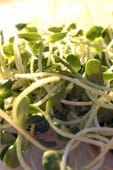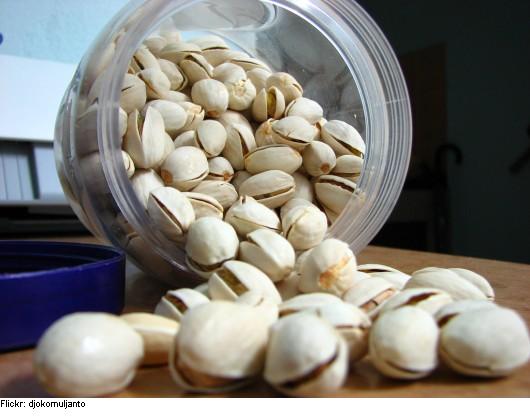Salmonella in nuts strikes again. Nuts and seeds seem to be prone to Salmonella contamination. This year alone peanuts, pistchios, sesame and sunflower seeds, pecans and now hazelnuts from two Oregon companies have been recalled due to Salmonella contamination.
Kunze Farms of Dayton, OR is recalling 32,950 lbs. of hazelnut kernels distributed to several different processors and wholesaler’s in the following areas:
Dayton, OR; , Milton-Freewater, OR; Hauppauge, NY; Mesa, AZ; Cottonwood, AZ; Seattle, WA; Ogden, UT; San Antonio, TX.; and Parker, CO. The product was packed in 25 lb cartons, under our product brand name of Kunze Farms, ‘Select Shelled Hazelnuts’ Dayton, Oregon with the code numbers 289091A or 299091A.
Willamette Filbert Growers of Newberg, OR is recalling 29,861 lbs of Shelled Hazelnuts and Shelled Organic Hazelnuts. 
After product sampling, Salmonella was found on one production lot at the facility where Willamette Filbert Grower’s hazelnuts were shelled. To ensure consumer safety, Willamette Filbert Growers has decided to recall all shelled hazelnuts and shelled organic hazelnuts processed from October 12th 2009 through November 25th 2009. Shelled Hazelnuts and Shelled Organic Hazelnuts were distributed in Oregon and California through wholesale distributors and direct delivery. Unshelled hazelnuts are not subject to this recall. All products subject to recall were packed in 25 lbs. corrugated boxes bearing Willamette Filbert Growers or Meridian Organic Hazelnuts labeled with lot code numbers 289091A and 311091A.
Two Salmonella outbreaks linked to peanut butter, and an additional two Salmonella outbreaks linked to almonds earlier in the decade demonstrate how resilient Salmonella can be on and in dried nut products. At IAFP in August 2005, I co-moderated a symposium at which Robert Tauxe of the CDC said sesame seeds and Salmonella was the next big thing on the international food safety horizon. His prediction is still looking pretty good.


 The company says no illnesses have been reported.
The company says no illnesses have been reported. If you still have Anaheim peppers, please throw them away. Do not return them to the store. You may go to the service desk for information on receiving a refund.
If you still have Anaheim peppers, please throw them away. Do not return them to the store. You may go to the service desk for information on receiving a refund.
 The press release from the
The press release from the  The study’s authors pointed out that although there was no direct link to the contaminated seeds, 137 people in England and Wales fell ill from six sub-types of salmonella found in the seeds during the six-month study. Many more ill people are likely to have not reported their symptoms to GPs. The Health Protection Agency and the local authority group Lacors, which conducted the study, warned food manufacturers and retailers to improve hygiene during harvesting and drying of seeds.
The study’s authors pointed out that although there was no direct link to the contaminated seeds, 137 people in England and Wales fell ill from six sub-types of salmonella found in the seeds during the six-month study. Many more ill people are likely to have not reported their symptoms to GPs. The Health Protection Agency and the local authority group Lacors, which conducted the study, warned food manufacturers and retailers to improve hygiene during harvesting and drying of seeds.